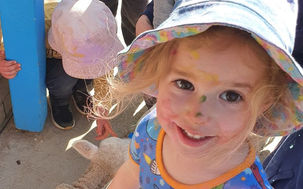Nature Pedagogy
Nature pedagogy in early childhood education emphasizes the importance of fostering a strong connection between young children and the natural world. It promotes outdoor and nature-based learning experiences that encourage children to explore, play, and learn in natural environments. Nature pedagogy recognizes that exposure to nature can enhance children's physical, emotional, and cognitive development. It often involves activities like outdoor play, nature walks, gardening, and exploring the environment, fostering a sense of wonder, curiosity, and environmental stewardship. This approach not only supports holistic development but also helps instill a lifelong love for the natural world, promoting eco-consciousness and sustainability from an early age.
"Let the child to be free; encourage them; let them run outside when it's raining; let them remove their shoes when they find a puddle of water..."
- Maria Montessori
"Earthing"
& tapping into the Earth's natural energy
Earthing, also known as grounding, is a practice that involves direct physical contact with the Earth's surface, typically through bare skin on the feet or hands. It is believed to have health benefits, as it allows the body to absorb free electrons from the Earth, which may help reduce inflammation, improve sleep, and enhance overall well-being. Earthing enthusiasts claim that it can potentially balance the body's electrical charge and mitigate the impact of electromagnetic radiation. While scientific research on the subject is ongoing and somewhat limited, many people find grounding activities, like walking barefoot on natural surfaces or using earthing products, to be a simple and natural way to reconnect with the Earth and promote a sense of vitality and relaxation.

























